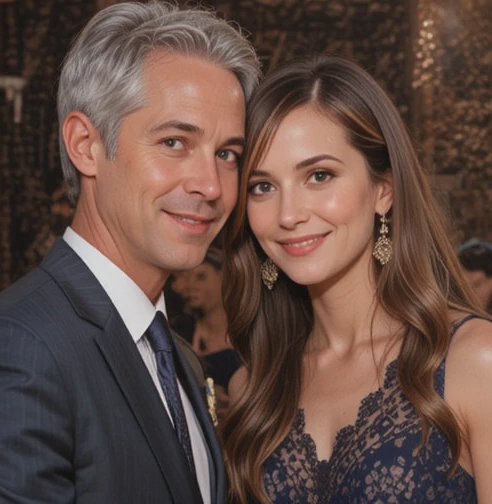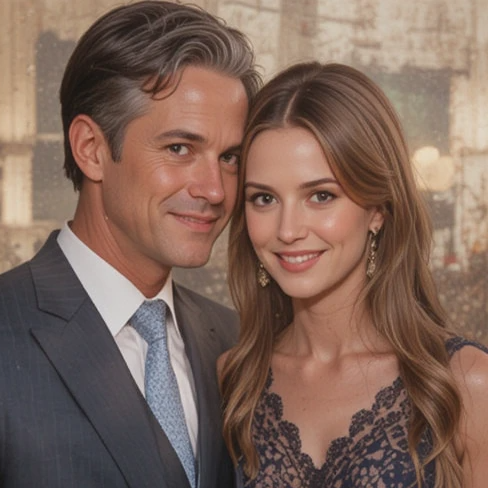



Prologue: The Divide
Philadelphia’s streets simmered with the heat of a contentious election year. Protesters clashed outside City Hall—“Unite the Right” rally on one side, “Justice for All” counter-protesters on the other. Amid the chaos, Amara Patel, a 26-year-old South Indian American community organizer, locked eyes with Malik Johnson, a Black documentary filmmaker capturing the scene. Their connection was instant, electric, and impossibly fraught.
Collision
Amara’s parents had warned her about dating outside their Gujarati caste, let alone outside their race. “Love is political,” her father once said, “and politics here will swallow you whole.” But Malik’s quiet intensity disarmed her. Over lukewarm coffee at a protest medic tent, he showed her clips from his latest project: Black farmers in Georgia fighting land dispossession.
“Your work’s about reclaiming stories,” she said.
“And yours is about rewriting them,” he replied, nodding at her “Decolonize Philly” pin.
They kissed that night in her cramped studio, the chants of “No justice, no peace!” echoing below.
Unseen Lines
Malik’s row house in West Philly became their sanctuary. He cooked jerk chicken while she taught him Gujarati phrases, their laughter dissolving the world outside. But cracks emerged:
At a Juneteenth block party, Malik’s cousin side-eyed Amara’s henna-tattooed hands. “You sure she gets it?” he muttered.
At Diwali, Amara’s aunt pulled her aside: “His people have struggles, beta, but so do ours. Why complicate your life?”
They laughed it off—until the night a cop trailed them for three blocks after Malik bought groceries in her predominantly white neighborhood.
“You okay?” Amara asked, gripping his arm.
“Always am,” Malik said, too quickly.
Family Systems
Amara’s mother arrived unannounced on a Tuesday, bearing tupperwares of dal and a dossier of “suitable boys.”
“His father’s in prison?” she hissed after Malik left.
“For a nonviolent drug charge in ’99,” Amara shot back. “Systematic racism isn’t a flaw, Maa—it’s the design.”
Her mother’s silence stung more than words.
Meanwhile, Malik’s grandmother, a steel-spined church matriarch, interrogated him during Sunday dinner:
“That girl’s parents still think they ‘model minorities’? Tell me she ain’t using you for trauma points.”
He didn’t sleep for days.
The Incident
The video went viral in hours: Malik filming a traffic stop gone wrong, Amara shouting “He’s press!” as officers shoved her.
Comments exploded:
“Brown savior complex much?”
“Black men always dragging others into their mess.”
“Interracial couples = cultural genocide.”
Their inboxes flooded with death threats. Malik wanted to fight; Amara wanted to hide.
“You think my skin makes me safe?” she cried. “Cops see me as ‘angry minority’ first, human never!”
They broke up at 3 a.m., the glow of their laptops etching shadows on the wall.
Parallel Lives
Amara threw herself into organizing, screenprinting “Solidarity Not Saviorism” tees until her hands cramped. Malik filmed ICE raids, zooming in on children’s stuffed animals left in detention center dust.
They collided again at a vigil for a Bangladeshi Uber driver killed in a hate crime. Malik’s camera captured Amara leading a Hindu-Muslim-Jewish prayer circle, her voice cracking on “Shanti, shanti, shanti.”
Afterward, he found her behind the stage, shaking.
“I miss us,” he said.
“I miss us too,” she whispered. “But the world keeps missing the point.”
Redefining Home
The verdict came on a Thursday: no charges for the officers who killed the driver. Riot police lined Kensington Avenue as Malik and Amara marched arm-in-arm, their handmade sign demanding “No More Borders in Life or Love.”
A white nationalist counter-protester spat at Amara’s feet. Malik stepped forward; she held him back.
“He wants us divided,” she said. “Let’s starve him.”
That night, they slow-danced to Nina Simone in Malik’s kitchen, her lehenga swirling against his faded jeans.
“What are we?” he asked.
“A work in progress,” she said.
Epilogue: New Maps
Five years later.
At Malik’s Sundance premiere—a film about their mixed-race daughter’s dual naming ceremony—Amara grips his hand as their toddler squirms. “Aaravi Simone,” the screen reads, “beloved in Gujarati and Swahili.”
During Q&A, a student asks: “How do you sustain love in such hateful times?”
Malik smiles. “By building a country of two.”
Outside, snow blankets Philadelphia’s fractures. They drive home singing old freedom songs, off-key and defiant.
Character Arcs:
- Amara: From compartmentalizing her identity to embracing radical wholeness
- Malik: From performative activism to understanding partnership as praxis
- Supporting Cast: Families embodying generational trauma and cautious hope
Let me know if you’d like to expand specific scenes or delve deeper into cultural rituals!



